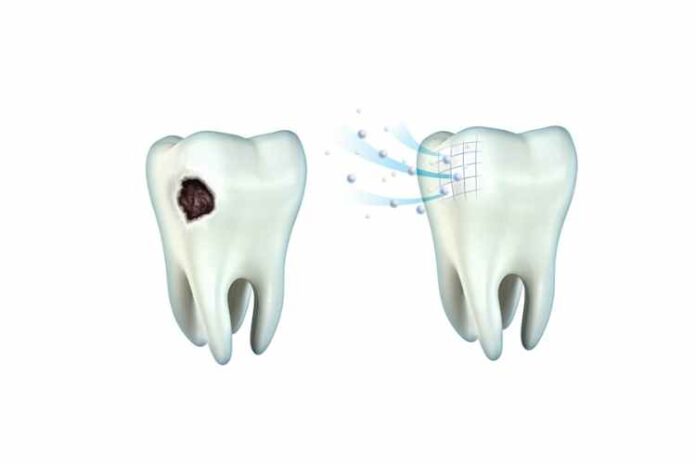Did you know that by the age of 30 years old, adult Americans would have at least one cavity in their lifetime? Cavities are an incredibly common ailment that many people of all ages struggle with, but luckily there are some signs of cavities that an individual can see ahead of time.
One of the most common ways that you can identify a cavity ahead of time is by feeling tooth pain. A common question many dentists get is “do cavities hurt?” and the simple answer would be yes. Pain can vary from mild to severe, but in general, pain is a good indication of a cavity.
If you’re interested in learning more about cavities as well as when to see a dentist for cavities, keep reading for some general information.
What Causes Cavities?
Cavities also referred to as dental caries, are permanent holes in the teeth that are caused by the tooth enamel breaking down. They are the most common form of tooth decay and can affect anyone of any age.
As for what causes cavities, there are a few main culprits. The biggest of which is an excess amount of bacteria that is allowed to live on the tooth or between the gums for far too long, eventually leading to decay. This is one of the reasons why dentists stress the importance of daily dental hygiene (brushing and flossing) so adamantly.
Frequent snacks or diets that are high in sugar can also lead to cavities, though these can be mitigated by good dental hygiene. The overall most important thing to preventing cavities is to have a good dental hygiene routine that you practice on a regular basis.
Cavities are most commonly seen on the back of the teeth near the molars. This is because most people tend to neglect cleaning the back of their teeth as rigorously as the rest of their teeth, which causes more and more bacteria to fester.
Occasionally, dry mouth can also cause tooth decay. How so? Well, quite interestingly, your saliva actually helps wash away bacteria, it’s the body’s natural way of preventing tooth decay.
Other causes may include dirty dental equipment such as mouthguards, acid reflux, eating disorders, old age, and lack of fluoride in the mouth.
Common Cavity Symptoms: Do Cavities Hurt?
Unfortunately, there are quite a few cavity symptoms and they can vary greatly from person to person. In some cases, you might not even feel any symptoms at all and the cavities can go largely undetected. This is why regular oral checkups are important, as dentists can run scans of your teeth to find cavities you didn’t know you had.
Some common cavity symptoms include:
- Mild to severe tooth sensitivity
- Any type of pain, whether it is frequent or infrequent.
- Toothaches
- Visible holes on the surface of the teeth
Teeth stains are also a possible indication of tooth decay and cavities, but it could also just be a result of eating or drinking certain items such as coffee.
How To Prevent Cavities
The basis of every cavity prevention treatment program, no matter the patient or the case, is to have a good dental hygiene regimen. This includes brushing at least two times a day (2-5 minutes) and using fluoride toothpaste.
Floss every time you brush, as brushing alone cannot remove the leftover food waste in between your teeth. You especially need to floss at night as food particles quite literally grow bacteria at an alarmingly high rate when your mouth is closed for hours on end.
If your dentist recommends it, using a good mouthwash can also help prevent cavities and other mouth diseases such as gingivitis and periodontitis.
You should also see your dentist every few months for a deep cleaning and dental exam. During these sessions, the dentist will professionally power wash your teeth and identify any diseases such as cavities or gingivitis. They’ll also give you individual treatment options if they find a potential ailment.
Other ways to help prevent cavities include eating a tooth-friendly diet, using sealants, chewing on sugar-free gum, avoiding charcoal items, and using dental sealants.
When To See A Dentist For Cavities
If you feel like you are developing a cavity due to the symptoms described above, we highly recommend that you schedule an appointment with your dentist as soon as possible. Any signs of pain, sensitivity, or discomfort should not be allowed to stay for long.
Neglecting routine or requested dental visits is not something you should be doing under any circumstances. If cavities go untreated, it can lead to further tooth decay. Severe tooth decay warrants root canals or crowns for treatment, which are not only temporary fixes but also very expensive.
Cavities are also a sign of poor dental hygiene. If you have one, two, or even seven cavities, it is a good indicator that you’re at risk for developing gingivitis (gum disease). Gingivitis causes gum bleeding and discomfort, which can lead to permanent tooth damage.
In the worst-case scenario, gingivitis can lead to periodontitis which is completely irreversible. Periodontitis is a severe form of gingivitis and can alter not only your mouth’s health but the appearance of your teeth overall.
You don’t want to wait to treat your cavities. Your mouth and smile are important not only for your overall health but your self-esteem and confidence. Everyone deserves a healthy and beautiful smile, which starts with preventing cavities from forming.
Can Cavities Go Away?
If you detect early signs of cavities, you can prevent them from getting worse. But if the cavity is already causing pain and has caused permanent damage to the tooth, it is irreversible. However, you can get a cavity filling to fill in the gap caused by tooth decay.
Treatment plans for cavities might look different depending on the severity as well as what types of cavities you might have. Cavities can come in three ways: pit and fissure cavities, root cavities, and smooth-surface cavities. Be sure to talk with your dentist about the different options available.
Please visit here if you are in the Greensboro, NC area and are needing advice on choosing a family dentist.
Additional Medical and Dental Help
We hope that after reading this short guide, you have a better sense of what cavities are and how to prevent them. Listed in this guide are also some common symptoms of cavities, which also included the answer to the question of “do cavities hurt?”
If you require any additional information about your dental health or health overall, please visit the ‘health‘ category of our blog.


























